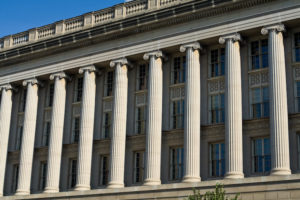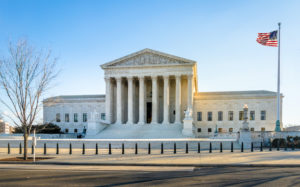Rethinking Benefit-Cost Analysis for COVID-19
The normative foundations of the value of statistical life render it an insufficient tool to analyze pandemic-related policies.
Court Weighs in on Pipeline Crossing Appalachian Trail
The Supreme Court rules that the Forest Service can approve natural gas pipelines crossing the Appalachian Trail.
Consumers Win Assurance of Important Protection From Securities Fraud
The Supreme Court reaffirms lower courts’ ability to claw-back profits from violators of securities laws.
A 21st Century Update to Digital Copyright Law
A recent U.S. Copyright Office report reviews a key provision of the Digital Millennium Copyright Act.
Week in Review
DHS will reject future and pending DACA applications, President Trump signed executive orders to lower the price of prescription drugs, and more…
Does the Sharing Economy Share Too Much?
Scholar recommends consumer protection laws to combat misuse of data in the sharing economy.
Reason Trumps Pretext
Requiring government institutions to engage in reasoned decision-making mitigates actions made in bad faith.
The Administrative State Is Neglecting Regulatory Benefits
Scholar argues for regulatory reforms grounded in an intense focus on net benefits.
DACA and the Limits of Good Governance
Administrative law principles led the Supreme Court to deliver a victorious but unsatisfying and uncertain conclusion for migrants.
Co-Producing Safe Farmers Markets During COVID-19
State and local governments should embrace farmers market managers’ input on food regulation during the pandemic.
The Shape of Water After County of Maui v. Hawaii Wildlife Fund
Despite guidance from the Supreme Court, the future of water regulation remains uncertain.
Clarifying the Default for Anti-Discrimination Statutes
Policy-free textual analysis wins when interpreting causation standards in statutory text for employment actions.












